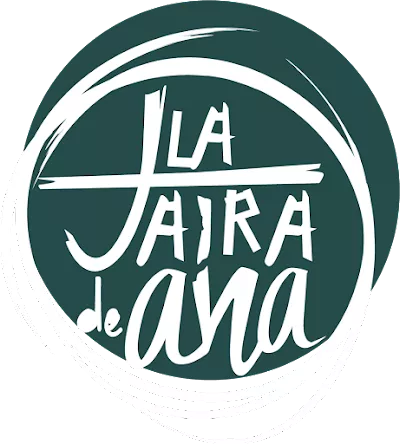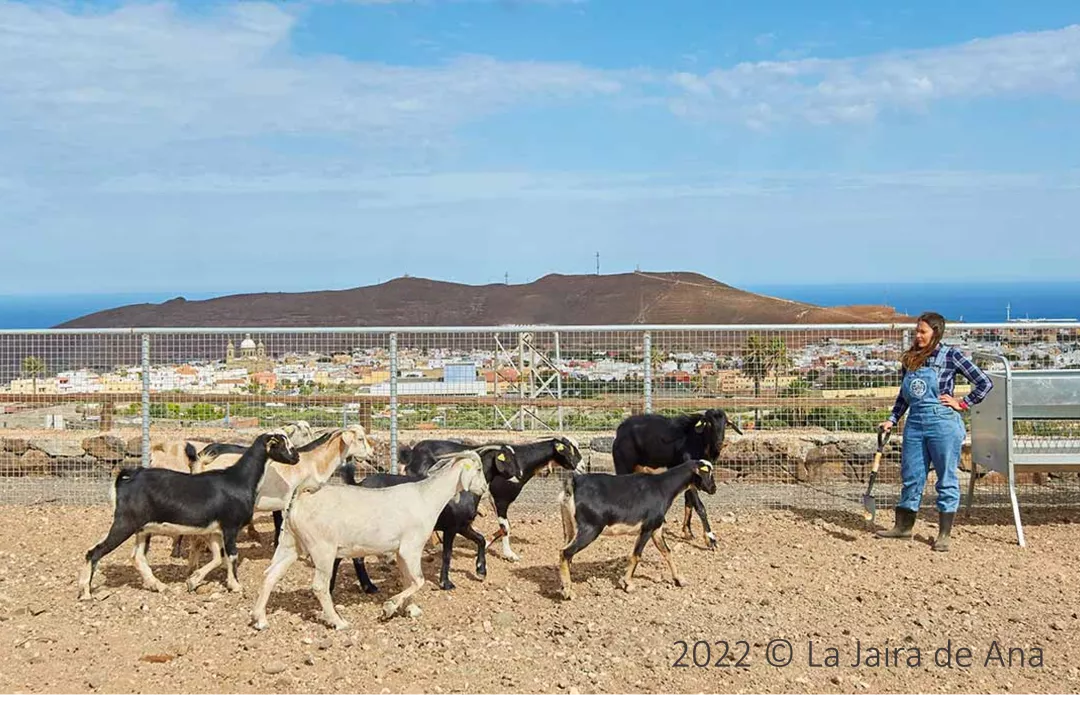General information
RDP Priority
- P6. Social inclusion and local development
RDP Focus Area
- 6B: Local development
RDP Measure
- M19: LEADER/CLLD
Summary
The ‘La Jaira de Ana’ farm was set up using LEADER funding to raise awareness (through participatory experiences and workshops) about the importance of the primary sector for the culture and society of the Canary Islands. In this context, in addition to goat farming they also organise dedicated key support services for rural women and their children – particularly those effected by gender-based violence.
Results
In 2021, the farm supported around 79 young women and 99 minors through the OCIRIF project, in addition to welcoming between 20 and 50 children every weekday via its school visits programme.

Promoter
La Jaira de Ana
Funding
Total budget: 91 000 (EUR)
RDP contribution: 21 000 (EUR)
National funds: 70 000 (EUR)
Resources
Documents
Social farming in Spain’s Canary Islands supports rural women and families
(PDF – 2.06 MB)
Context
The limited economic integration of women in rural areas is a significant contributing factor to the depopulation of rural areas - which is a major issue for rural Spain - as women tend to relocate to urban areas in search of opportunities and autonomy. According to Euroganaderia, a Spanish digital newspaper created and promoted by livestock experts, while the Spanish population grew by 15 % between 2000 and 2017, from 40.5 million to 46.57 million inhabitants, the rural population decreased during the same period by 9 %: from 8.54 million to less than 7.7 million. In addition, rural areas tend to be more traditional and patriarchal, which puts women at greater risk of being the victims of gender- based violence. In the Canary Islands, for example, 61.35 % of rural women have experienced gender-based violence (Ministerio de la Igualdad, 2020).
There is a clear need for action in rural areas, both to prevent acts of gender-based violence, and also to address the consequences of this violence (fewer opportunities, resources, alternatives for their care and development) on younger women and their children. A holistic approach is necessary and an important aspect of this is support which establishes networks for and by local women and which relates to their immediate surrounding environment.
Objectives
The main objective of the ‘La Jaira de Ana’ farm is to strengthen bonds between mothers who are victims of gender-based violence and their children, through creative workshops related to the primary sector.
Activities
The Jaira de Ana farm was established by the social worker Anabel Calderín Castro using a combination of funding sources, including LEADER investment under the Canary Islands Rural Development Programme. Part of the centre’s activity programme includes workshops which aim to familiarise school group and family visitors with rural life. These include organised tastings of local products such as cheese, honey, and olives; a goat sponsoring / ‘adoption’ programme; and the use of the space for hosting celebrations and cultural events.
The farm also runs projects that focus on gender equality. The OCIRIF project, for example, delivered a programme of 4 x 4-hour workshops for young mothers under 36 years old who are victims of gender-based violence. Around 11 of these workshops were delivered in 2021, covering all the municipalities of the island of Gran Canaria, and their success has led to a new cycle of workshops being launched in 2023. Alongside psychosocial welfare sessions, meditation and aromatherapy, the participants (together with their children) also get involved in therapeutic traditional crafts; learning to work with wool, and making natural cosmetics, for example. The children are also offered play sessions where they focus on social and emotional skills development through caring for and grooming the animals on the farm.
Another project - ‘Guardianes de Los sabores’ – created a gastronomy network, composed of women producers and food enthusiasts from different municipalities, to give them and their work greater visibility. The project is currently the subject of a research partnership involving the University of Tenerife.
Main results
In 2021, the farm supported around 178 people - 79 young women and 99 minors – through the OCIRIF project. The project’s evaluation revealed an average participant satisfaction score of 9.5 out of 10.
The farm welcomes between 20 and 50 children every weekday via its school visits programme. Here, a generation of young children are introduced to the primary sector, sustainable agriculture and animal welfare.
Key lessons
In order for the farm and its gender balance-oriented activities to be successful it was essential for the project initiators to ensure cooperation and support at various levels, both locally and regionally. The farm works closely with the University of Agrotourism of Tenerife, the National Rural Network of Spain, the Canarias Government, and other associations and NGOs.
